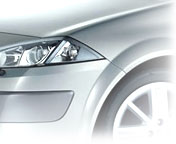More and more businesses are once again choosing contract hire over car allowances for employees. There are several reasons why. Managing a fleet of vehicles takes up considerable time and resources. With contract hire the leasing company takes responsibility for all the day-today management, greatly simplifying administration. In addition, the cost of the vehicles will be off balance sheet meaning they will not be shown as a liability in your accounts. This has the advantage of making your business look more financially attractive as there will be much less impact on your business gearing.
Sale & Leaseback
Purchasing a vehicle fleet ties up valuable cash resource at the front end and involves the risk of unpredictable resale values at the back end. By selling the fleet and leasing it back, your company will benefit from fixed monthly costs and the elimination of residual value exposure which means you can budget more effectively.
Sale and leaseback also;
- Frees up substantial capital for re-investment
- The lease payments can be offset against taxable profit
- Frees up the time you spend administering your fleet
- Removes depreciation issues
- Boosts your company's liquidity
- Moves your fleet off balance sheet and provides VAT benefits - 50 percent of the lease VAT and 100 percent of the VAT on a maintenance agreement can be reclaimed
The true figures for the cost of buying, financing, maintaining and disposing of vehicles can be difficult to evaluate. The right finance provider can help with this and also offer related services such as relief vehicles during repairs, accident management, roadside assistance, and fuel cards.
|

